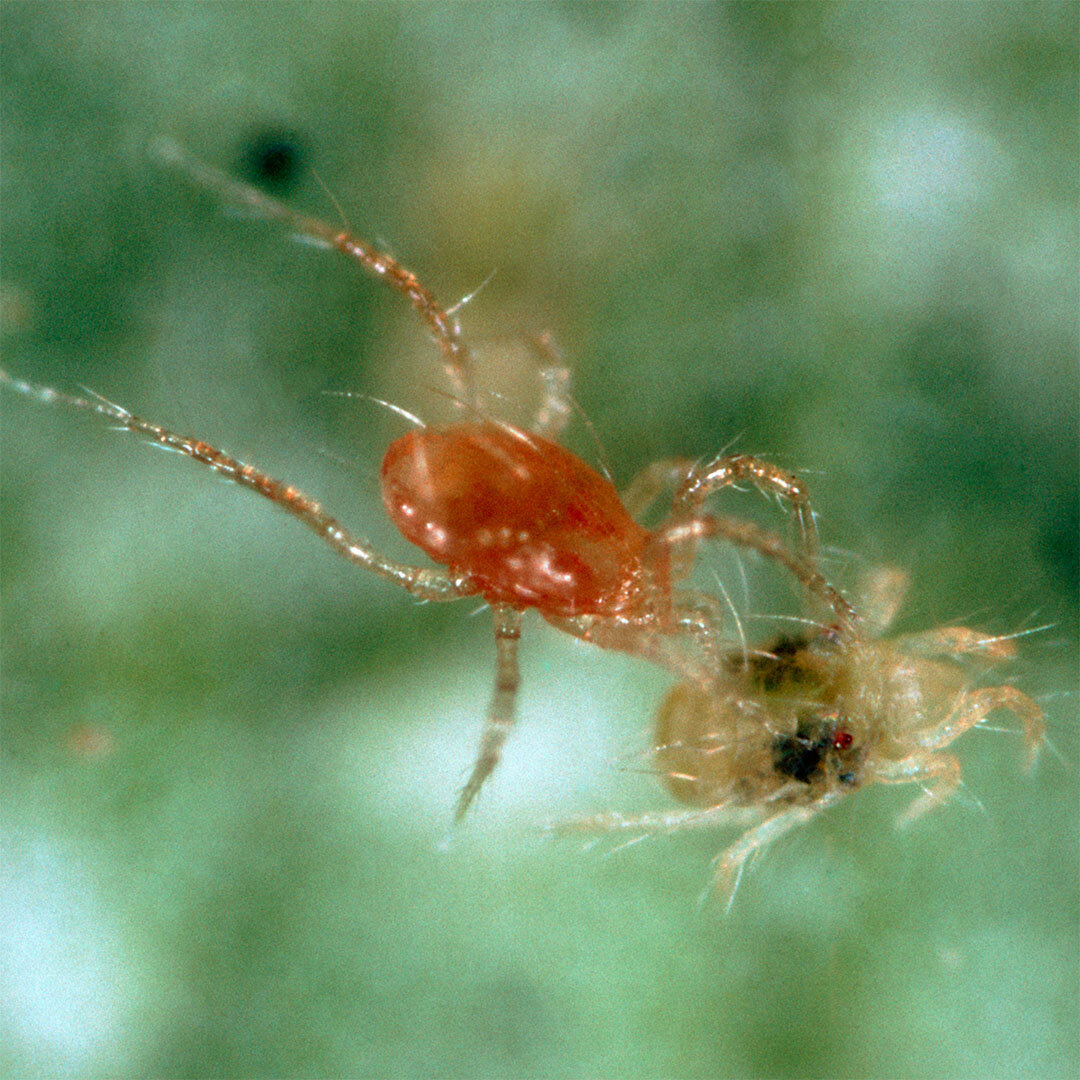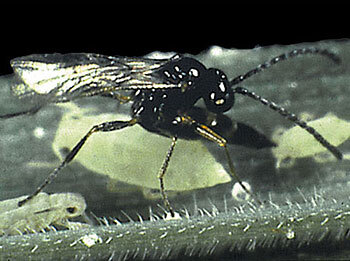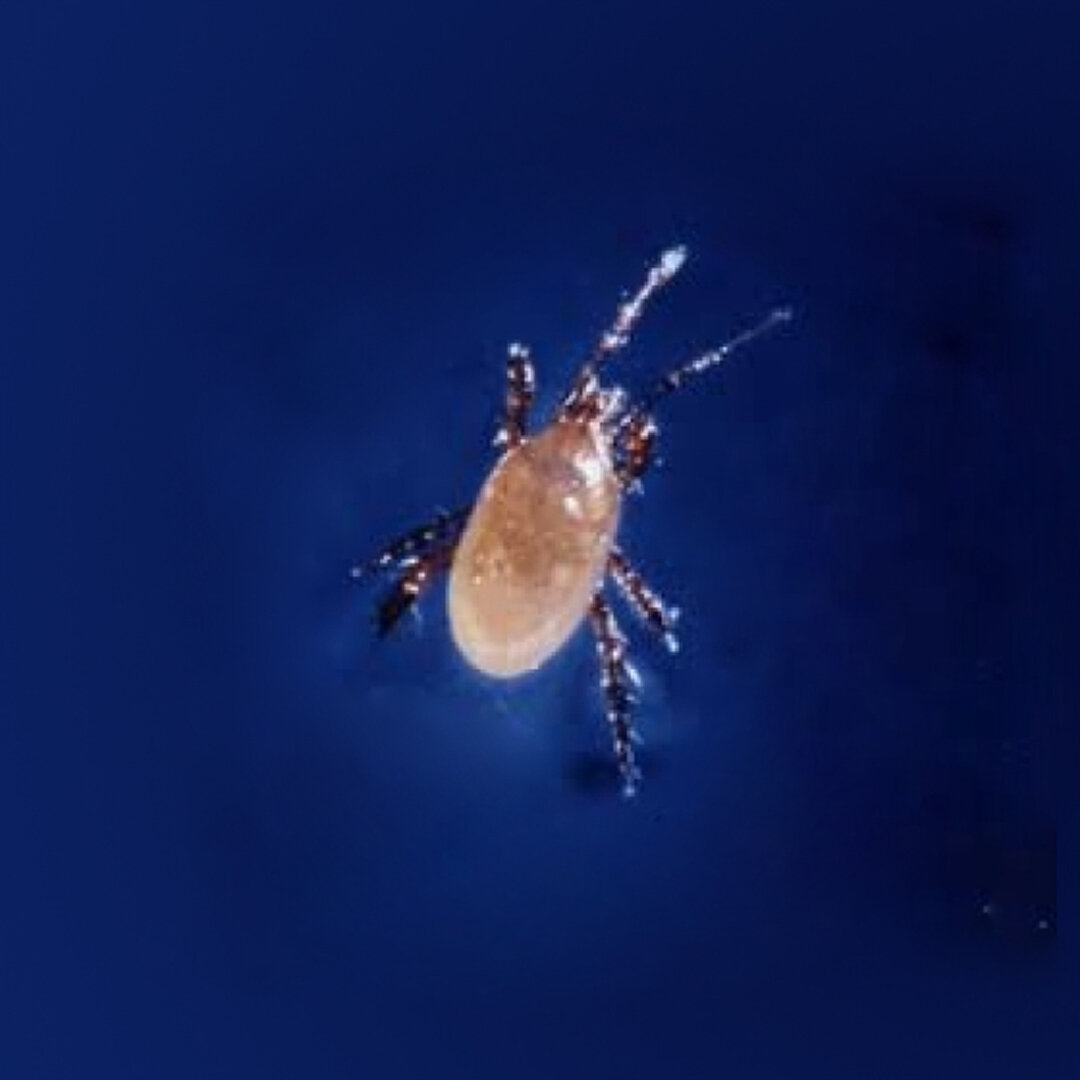Organic Cannabis Cultivation - What is integrated pest management [IPM]?
A prominent agricultural process that has been trending in the cannabis industry over the last few years is integrated pest management, better known as IPM. This combination of methods suits the cannabis grower as it minimizes the impact on the environment while boosting plant health and meeting regulatory constraints by reducing or eliminating the need for harsh chemical-based pesticides. Like any well-planned grow, IPM starts with selecting soil media full of nutrients and microorganisms, adequate forecasting and planning, trapping and monitoring, cultural controls, biological controls, and when necessary chemical controls featuring ingredients that are highly vetted with a low impact on the environment.
Praying Mantis waiting for prey [Image by Arbico]
There are several beneficials that cannabis growers can utilize, and pre-emptive control is important as it can save on hardships later down the line. It is also important to continuously monitor for pests in all stages and apply beneficials at the onset of infestation for best results. Two great beneficials to introduce as a preventative measure are beneficial nematodes and Stratiolaelaps scimitus (Hypoasis miles), aka fungus gnat predators. These are both great for soil developing pests and can be applied before the onset of an infestation. Beneficial nematodes are live microscopic organisms that parasitize over 200 species of soil pests including fungus gnats, root aphids, and thrips, and are compatible with most fertilizers and insecticides, limit pesticide use in vegetative and flowering stages by limiting pest population throughout the growing season and leave no residue to ensure a clean end product.
Indoor grows can really benefit from controlled use of beneficial insects [Image by David Downs]
Beneficials are either generalists and predate on/parasitize a variety of pests at various life-stages or specialists that predate/parasitize only certain species of pests and all beneficials have temperature and humidity constraints. For pests commonly found on cannabis, there are several generalists to choose from depending on pest type, growing conditions, and infestation level and include Assassin Bugs (Zelus renardii), Green Lacewings (Chrysoperla rufilabris), Minute Pirate Bugs (Orius insidious), and even Ladybugs (Hippodamia convergens). [Images below by Arbico]
Some of the most frustrating pest infestations can be controlled by utilizing a specialist predator. These include Mite Predators (Phytoseiulus persimilis), Aphid Wasps (Aphidius colemani), and the Fungus Gnat Predator (Hypoasis miles). The selection of a specific specialist usually is based on how well they will thrive in a specific growing environment and how well they can suppress a certain population. Commonly, it is suggested to combine several beneficials for the most efficient results. [Images below by Arbico]
Lastly, the key to a successful IPM plan starts with good planning and preparation and it is important to know your growing specifics such as temperature levels, humidity levels, grow size, soil media, and care regime, and any additional specifics when creating an IPM plan. Beneficial insects are predominately grown in labs and require lead time for collection and shipping so don’t wait until it’s too late!
While most growers are seasoned experts when it comes to soil and planning ahead, it can be daunting to navigate selecting and utilizing beneficial insects and organisms. A good resource for not only information but also for the acquisition of beneficial controls is a family-owned business in Tucson, Arizona that has been helping growers make sustainable choices for over 40 years, ARBICO Organics. Their mission is to help guide growers towards utilizing IPM practices in a way that is both efficient and easy. They have a team of specialists that can help growers determine the best solutions for their pest problems and provide valuable information that will help create a successful IPM plan including pest identification and suggesting the best beneficial for control in a particular growing environment. Once you have selected which beneficial to use, the specialists at ARBICO Organics can help you to determine the right amount to introduce, when to release the beneficial, and what kind of continuity (repeated applications) or schedule will best support success. When applying beneficials, it’s imperative to reintroduce them at an amount and pace that is higher than the pest’s reproduction levels to suppress the pest population. ARBICO Organics also offers a wide array of knock-down insecticides derived from ingredients like neem-oil and more that can help you treat pests without harsh chemicals.

![Praying Mantis waiting for prey [Image by Arbico]](https://images.squarespace-cdn.com/content/v1/5b15b6b825bf0270b8b4f22a/1631832045356-8R777O3USF6SUGZAQ7KL/mantid-cannabis+1080x1080.jpg)
![Indoor grows can really benefit from controlled use of beneficial insects [Image by David Downs]](https://images.squarespace-cdn.com/content/v1/5b15b6b825bf0270b8b4f22a/1631832398916-GEVW8FH5N75WPNZ549MT/large+scale+flowering+room+%40Bolder_Cannabis_photo_david_downs.jpg)







![Learn more about integrated pest management [IPM] on Arbico’s Website](https://images.squarespace-cdn.com/content/v1/5b15b6b825bf0270b8b4f22a/1631833432057-9R9LVQES4Z20BEG6ZFFU/ARBICO+IPM+1080x1080.jpg)